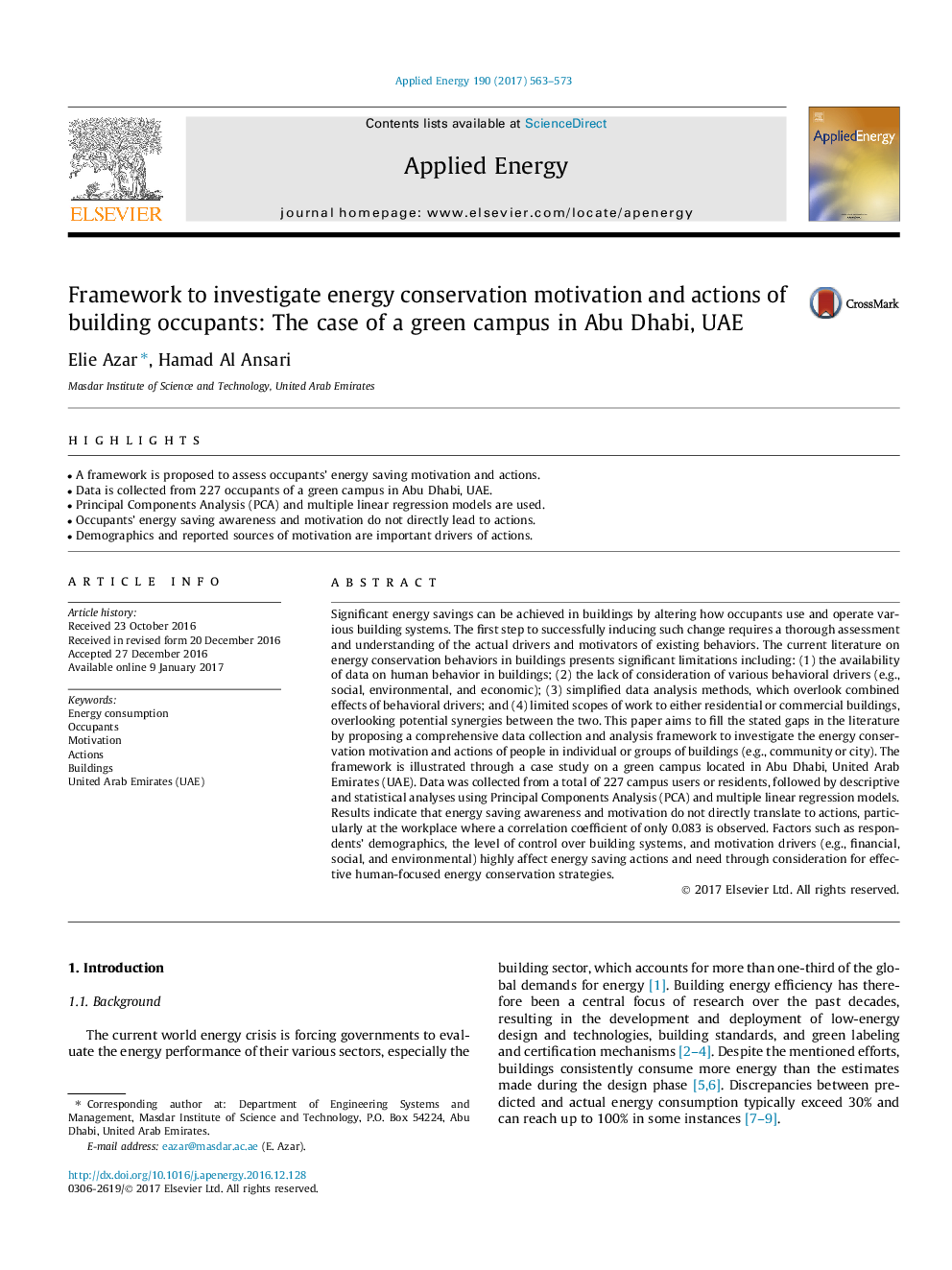| کد مقاله | کد نشریه | سال انتشار | مقاله انگلیسی | نسخه تمام متن |
|---|---|---|---|---|
| 6478553 | 1428100 | 2017 | 11 صفحه PDF | دانلود رایگان |
- A framework is proposed to assess occupants' energy saving motivation and actions.
- Data is collected from 227 occupants of a green campus in Abu Dhabi, UAE.
- Principal Components Analysis (PCA) and multiple linear regression models are used.
- Occupants' energy saving awareness and motivation do not directly lead to actions.
- Demographics and reported sources of motivation are important drivers of actions.
Significant energy savings can be achieved in buildings by altering how occupants use and operate various building systems. The first step to successfully inducing such change requires a thorough assessment and understanding of the actual drivers and motivators of existing behaviors. The current literature on energy conservation behaviors in buildings presents significant limitations including: (1) the availability of data on human behavior in buildings; (2) the lack of consideration of various behavioral drivers (e.g., social, environmental, and economic); (3) simplified data analysis methods, which overlook combined effects of behavioral drivers; and (4) limited scopes of work to either residential or commercial buildings, overlooking potential synergies between the two. This paper aims to fill the stated gaps in the literature by proposing a comprehensive data collection and analysis framework to investigate the energy conservation motivation and actions of people in individual or groups of buildings (e.g., community or city). The framework is illustrated through a case study on a green campus located in Abu Dhabi, United Arab Emirates (UAE). Data was collected from a total of 227 campus users or residents, followed by descriptive and statistical analyses using Principal Components Analysis (PCA) and multiple linear regression models. Results indicate that energy saving awareness and motivation do not directly translate to actions, particularly at the workplace where a correlation coefficient of only 0.083 is observed. Factors such as respondents' demographics, the level of control over building systems, and motivation drivers (e.g., financial, social, and environmental) highly affect energy saving actions and need through consideration for effective human-focused energy conservation strategies.
Journal: Applied Energy - Volume 190, 15 March 2017, Pages 563-573
